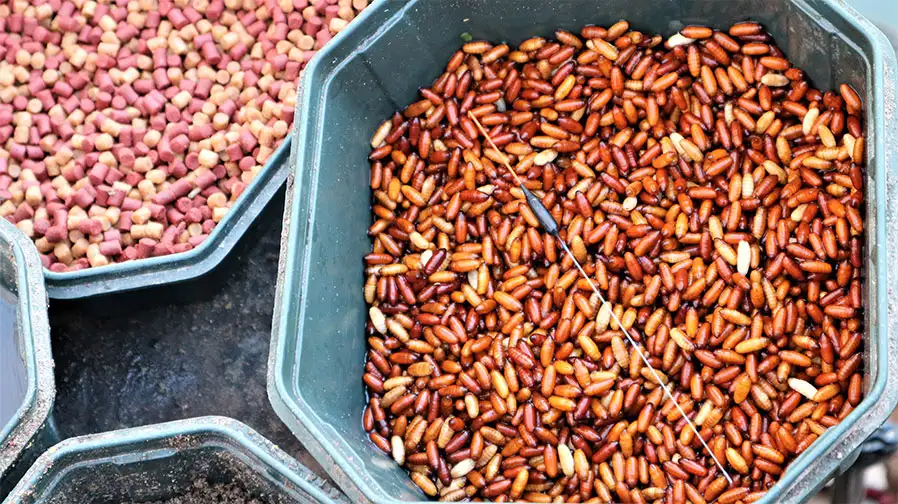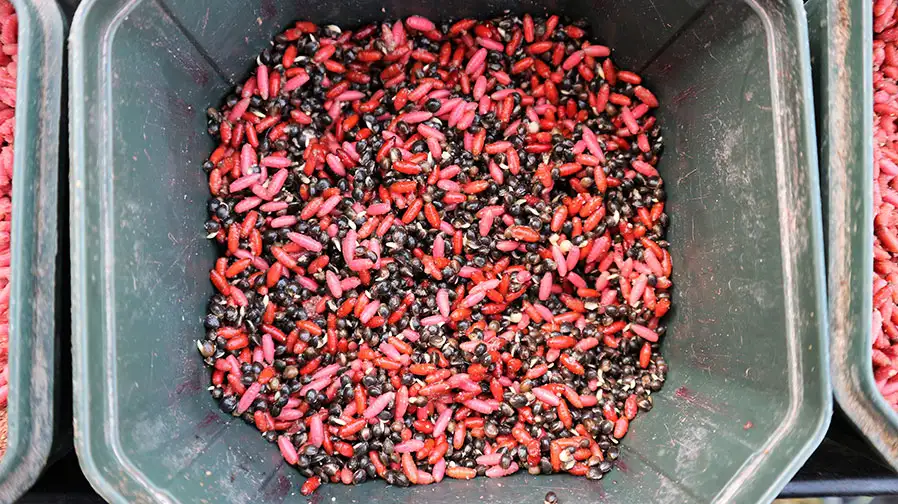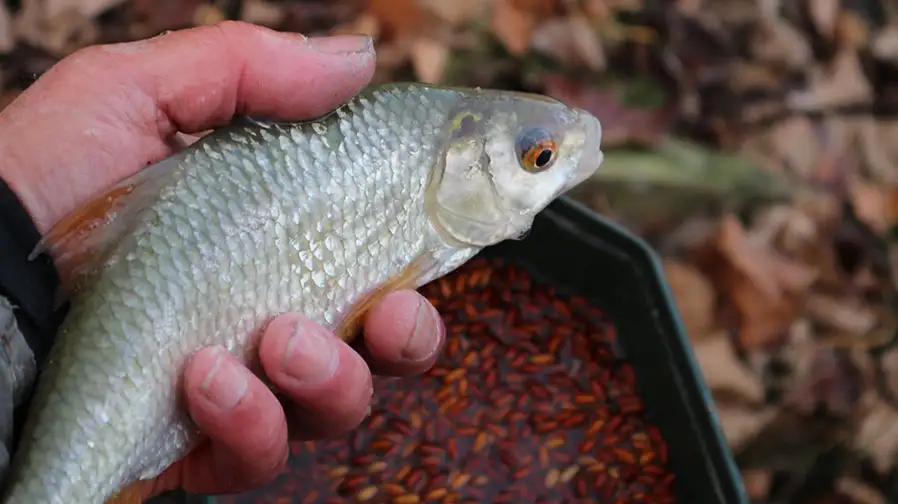This is a demo store. No orders will be fulfilled.
Dave's How To - Make It Happen With Caster

All caster fishing requires is sensitive floats, smaller hooks and lighter lines, none of which is likely to cause any problems because the fish are more lethargic in the winter anyway.
With the pole, I find it best to use ultra-sensitive fibre tipped floats with light capacities and wire stems. This allows the rig to have strung micro shot for a slow fall of the hook bait, a great way of inducing bites on-the-drop, or off bottom when fish are competing for regular loose feed.
Similarly, with running line rigs, it’s key to use fine tipped wagglers and stick floats, again spreading lower shot out so the hook bait descends in a natural manner. The main objective is to get your tackle working in unison with loose fed casters, so the hook offering in falling through the water amongst the freebies – a great way of fooling the craftiest of big fish!

You don’t need to feed a lot of casters during the colder months and a good way of preventing putting too many in is to mix them with cooked hemp seed. Medium sized hemp is around the same weight as a caster, so the two can be thrown or catapulted out together and will land in a neat grouping. Hemp is an added attractor, even if the fish aren’t actually eating it. Tinned hemp in particular gives off a strong nutty aroma and fizzes off lots of oil, which pulls fish into the swim. Combining this with keeping small amounts of casters falling through the water column, stimulates fish into snapping at your bait out of instinct, even if they are not inclined to feed freely. If you patiently get your feeding right, casters will gradually provoke a proper response anyway. You need to work at teasing the fish in your swim into chasing small, regular amounts of feed, rather than throwing too much in, which they can graze on whenever they want. A pint of casters goes a long way in the winter and very often only half a pint, combined with a similar amount of hemp, is enough for a busy day’s fishing and a good bag of fish.

Casters are particularly good at sorting out better sized silver fish like roach, rudd, skimmers, bream, chub, dace and perch. I like my casters to be as dark as I can get them without turning into floaters. A good way of doing this is to put fresh casters into a bait box with a perforated lid, first placing some damp newspaper over the top of the bait. If you leave this in a fridge overnight, most of the bait will turn a lovely rich golden-brown colour, with hardly any floaters. Darker casters sink slowly and attract more interest. You can also keep any floating shells for use as hook baits because these help to counter the weight of a hook, again sinking more slowly and in a more enticing manner.
If they are going to be used within a few days, fresh casters can be kept in a plastic bag and fridged, but remember to give them a shake every 24 hours and give them a 5-minute airing to prevent greyness and bag burn. Casters can also be stored for much longer periods by covering them with water and freezing them in a sealed bait box. But once they have been allowed to thaw out, always keep them covered in water, otherwise they will go mushy and turn black.